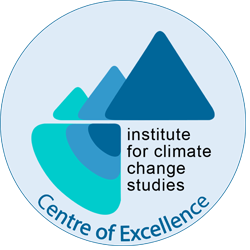The Institute for Climate Change Studies (ICCS), is an Institution of the Kerala State Council for Science, Technology & Environment (KSCSTE), under the Department of Science & Technology, Govt of Kerala. The general objectives of the Institute for Climate Change Studies (ICCS) are focused research on State specific impacts of climate change on various sectors and zones of the State and propose appropriate action for climate change management and adaptation strategy in collaboration with other Institutes, Universities and Line departments. At the inception, the institute’s initiative was to understand the effects of global climate change on the biosphere, with an ecosystem approach towards biodiversity conservation, sustainable agricultural practices, and disaster risk reduction. With the recent experience of frequent extreme weather phenomenon over the state, the institute has broadened its research over various synoptic and regional weather patterns causing extreme events in projected climate change. It envisages enhancement of networks of systematic observations of key elements of physical, biological, and human systems affected by climate change particularly in the Kerala part of Western Ghats and important elements in bio-geochemical cycle in the area. Detailed investigations into the various components of hydrologic cycle that are sensitive to climate change is prioritized for improving the adaptive capacity of the State. Its focus is on process-oriented investigations into the role of monsoon and its intensity in Western Ghats region to model climate and predicts climate variability, development of long- and short-term implications of global warming on the climatic conditions of the state influenced by the Western Ghats and anthropogenic factors at various scales.
The mandate of ICCS includes study of the atmospheric transport patterns, greenhouse gas emissions from natural sources such as forests, wetlands and from anthropogenic activities such as burning of fossil fuels, agriculture, plantations, tourism etc., to improve the understanding of the mechanisms and factors leading to changes in radiative forcing in the state; reduce the uncertainty in the sensitivity of the climate system due to greenhouse gases emissions through improved climate models and reliable input data, and weather and climate information services, leading to impact studies, vulnerability assessments and its linkages to short- and long-term adaptation strategies at local level integrated in to the developmental planning process in the state for sustainable future.


